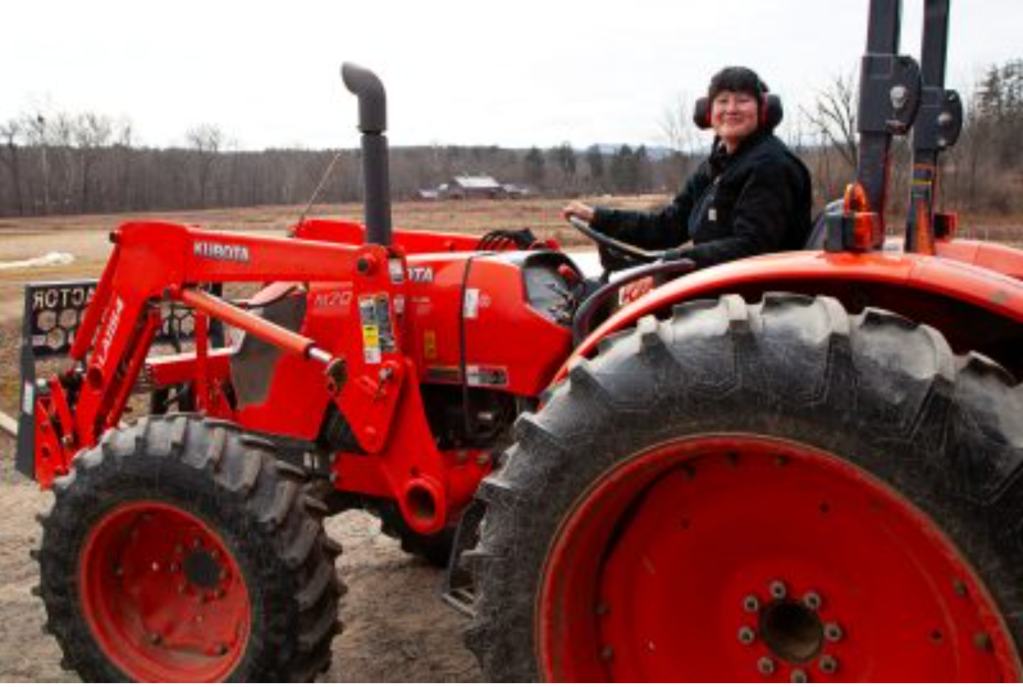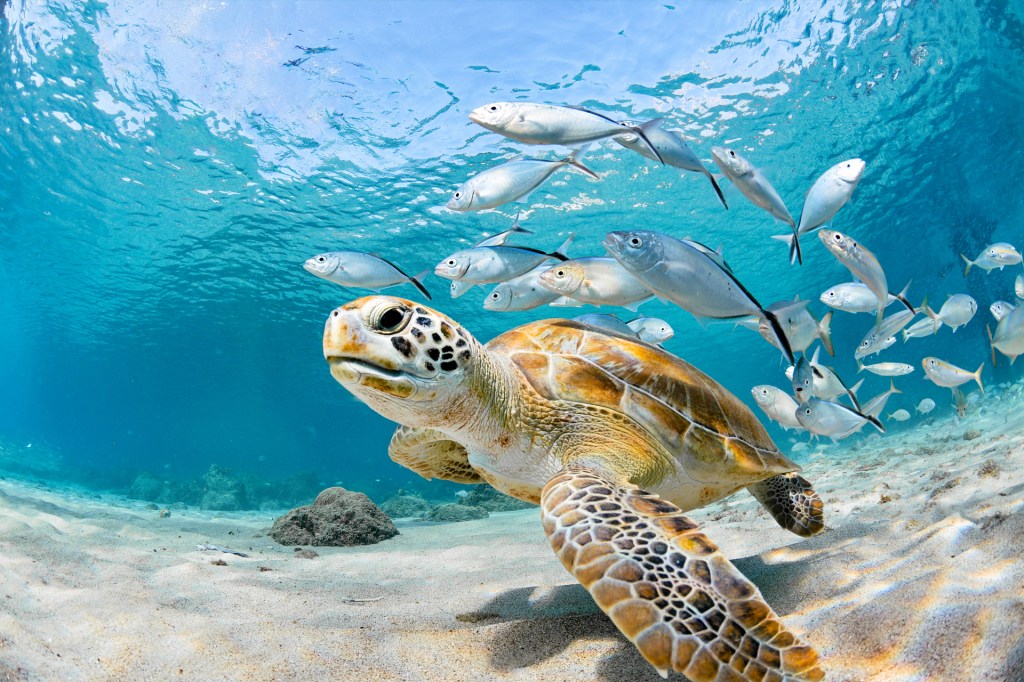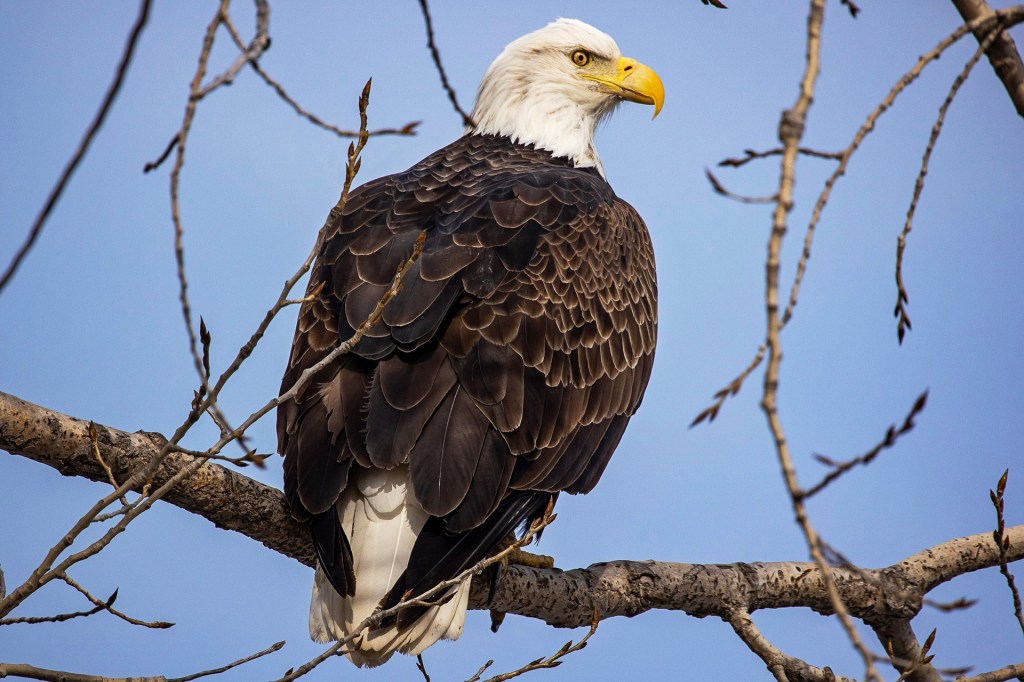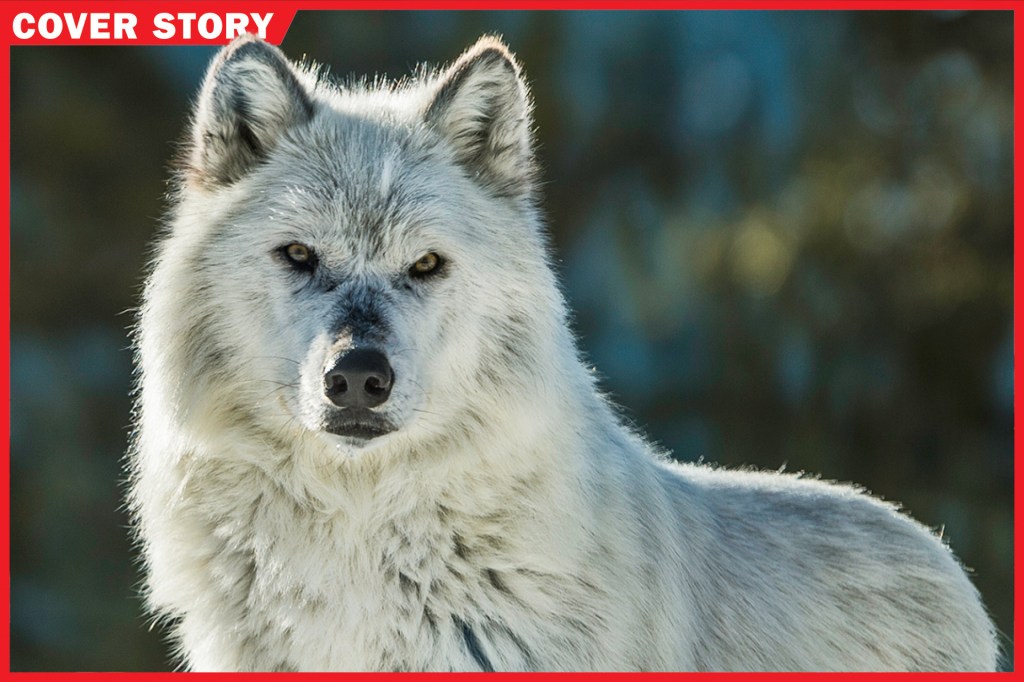Safe Travels
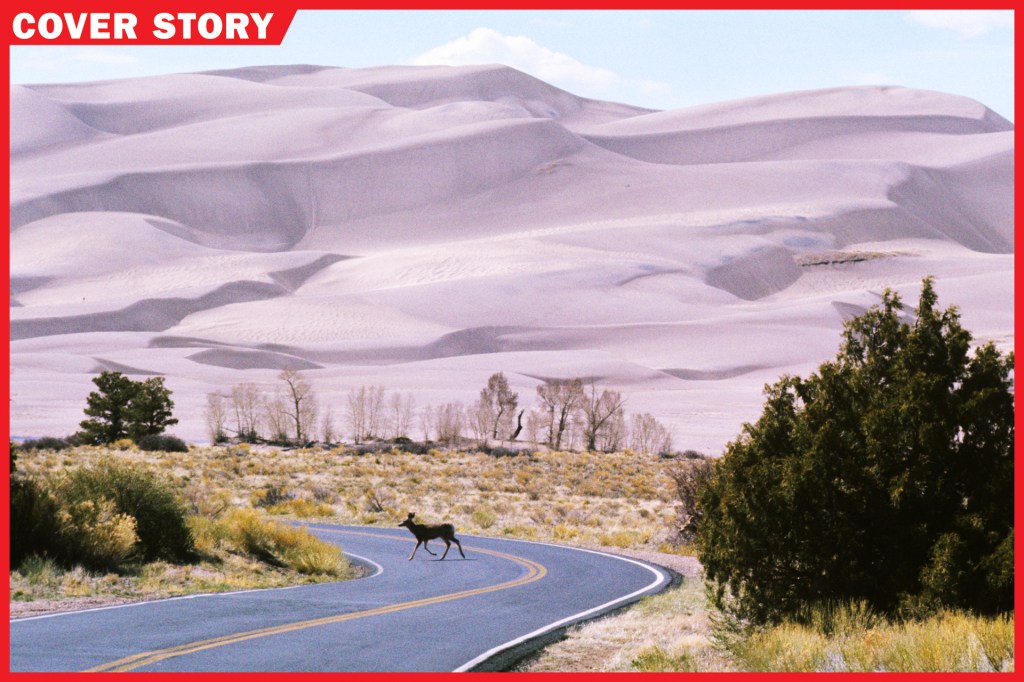
Patty Garvey-Darda loves pikas. They are small mammals related to rabbits. “I think they are about the cutest animals alive,” she told TIME for Kids. Garvey-Darda is a wildlife biologist. She works for the United States Forest Service. She wants to protect pikas and other creatures from a common threat: vehicles
vehicle
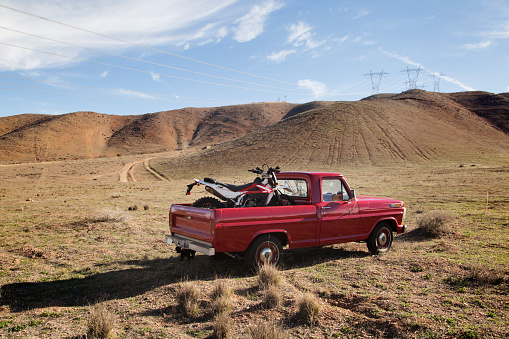 CAVAN IMAGES/GETTY IMAGES
a machine used to carry people and things from one place to another
(noun)
My family has three vehicles: a car, a truck, and a motorcycle.
. The Federal Highway Administration says more than a million roadway accidents involving animals happen in the U.S. each year. These collisions hurt wildlife and people.
CAVAN IMAGES/GETTY IMAGES
a machine used to carry people and things from one place to another
(noun)
My family has three vehicles: a car, a truck, and a motorcycle.
. The Federal Highway Administration says more than a million roadway accidents involving animals happen in the U.S. each year. These collisions hurt wildlife and people.

TRAFFIC STOP Cars stop for a deer as it crosses a street in Boulder, Colorado.
CLIFF GRASSMICK—DIGITAL FIRST MEDIA/BOULDER DAILY CAMERA/GETTY IMAGESOne solution to this problem? Wildlife crossings. In the U.S. and around the world, bridges and underpasses are being built to help animals safely cross roads.
Global Solution
Banff National Park in Alberta, Canada, has some of the most successful wildlife crossings. Completed in 2014, these include 38 underpasses and six overpasses, or bridges. They prevent the park’s animals from being hit while crossing the Trans-Canada Highway, which bisects
bisect
 LEW ROBERTSON—GETTY IMAGES
to divide into two parts
(verb)
He used a knife to bisect the pizza.
the park. Parks Canada says the crossing system has reduced collisions with wildlife by more than 80%.
LEW ROBERTSON—GETTY IMAGES
to divide into two parts
(verb)
He used a knife to bisect the pizza.
the park. Parks Canada says the crossing system has reduced collisions with wildlife by more than 80%.
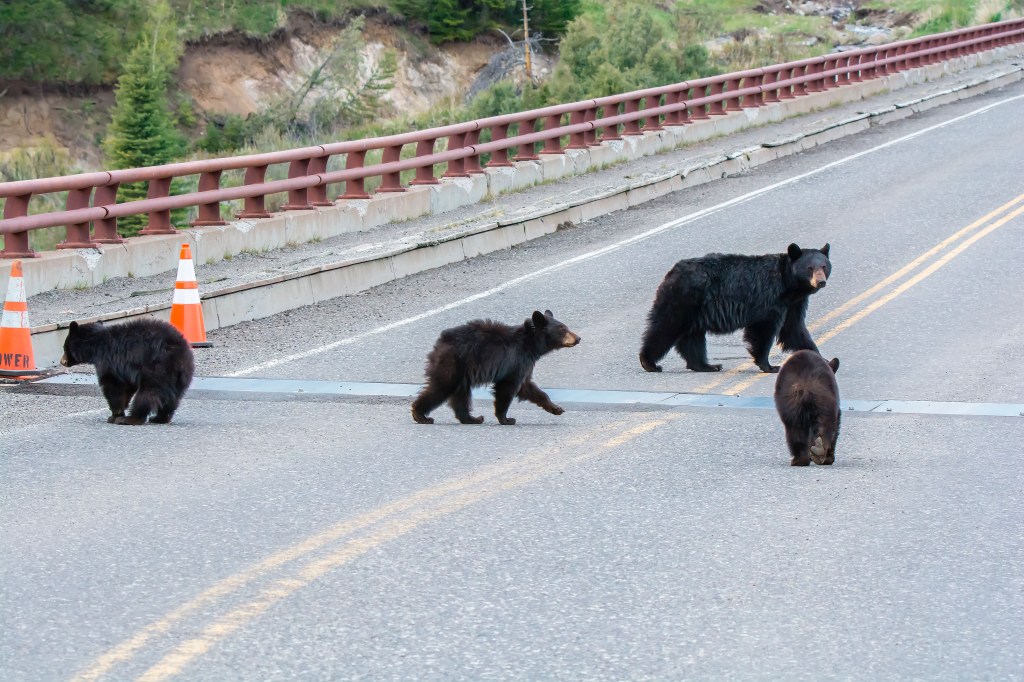
WATCH OUT! A mother bear and three cubs walk on a bridge meant for vehicles in Fallon, Montana.
JOHN MORRISON—GETTY IMAGESPeople study the Banff crossings as a guide for new construction projects, Rob Ament says. He works for the Western Transportation Institute at Montana State University. Ament notes Banff’s “high quality of design.” This includes fencing to direct animals away from roads.
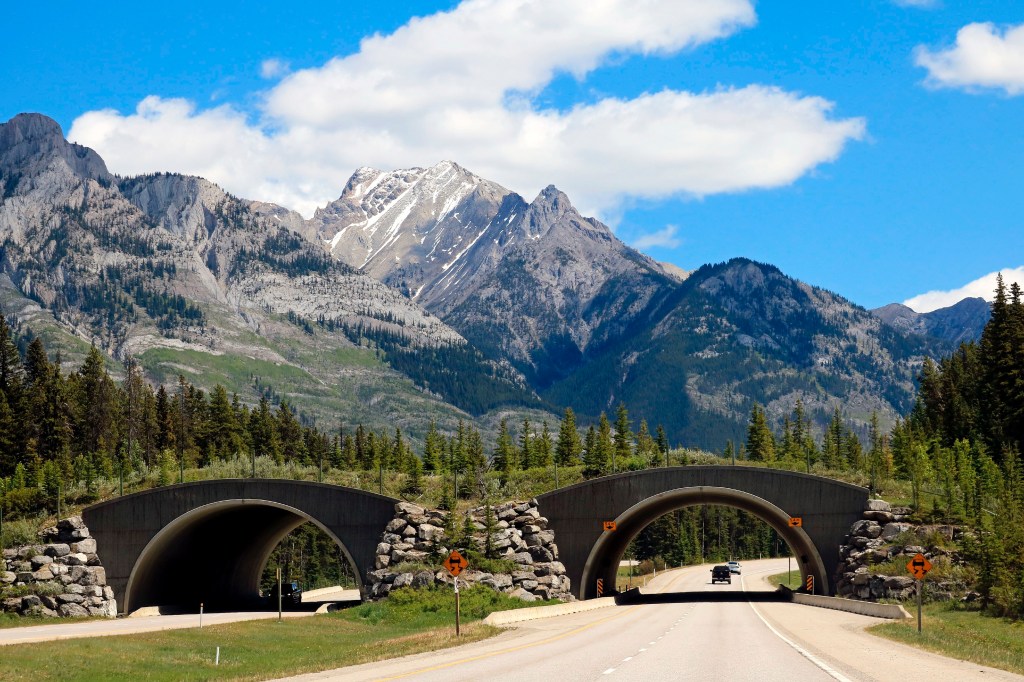
SUCCESS STORY Banff National Park in Alberta, Canada, is a model for wildlife crossings around the world.
EDUCATION IMAGES/UNIVERSAL IMAGES GROUP/GETTY IMAGESAment is using his expertise on wildlife crossings for a project in Assam, India. One of the state’s highways is on the border of Kaziranga National Park. “Animals leave the park to go up a dry hill during monsoon
monsoon
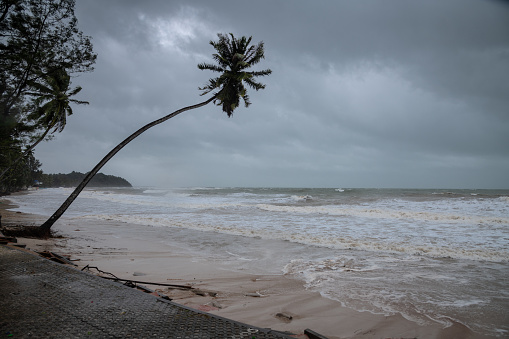 ARUN ROISRI—GETTY IMAGES
a period of wind and heavy rain
(noun)
A monsoon hit the island.
season,” Ament says. “That means they have to cross the highway.” Plans are in the works for a safe pathway beneath it.
ARUN ROISRI—GETTY IMAGES
a period of wind and heavy rain
(noun)
A monsoon hit the island.
season,” Ament says. “That means they have to cross the highway.” Plans are in the works for a safe pathway beneath it.
Under Construction
Wildlife crossings have been built in several U.S. states, including Arizona, Utah, and Wyoming. In Washington State, Garvey-Darda is part of a major project. She’s helping to design a set of about 20 wildlife crossings. “Banff has been the best model for us,” she says. Washington’s crossings are being built along a 15-mile stretch of Interstate 90 (I-90). That’s a long highway. This section of I-90 bisects the Cascade mountain range. It has disrupted the migration of animals in the area.
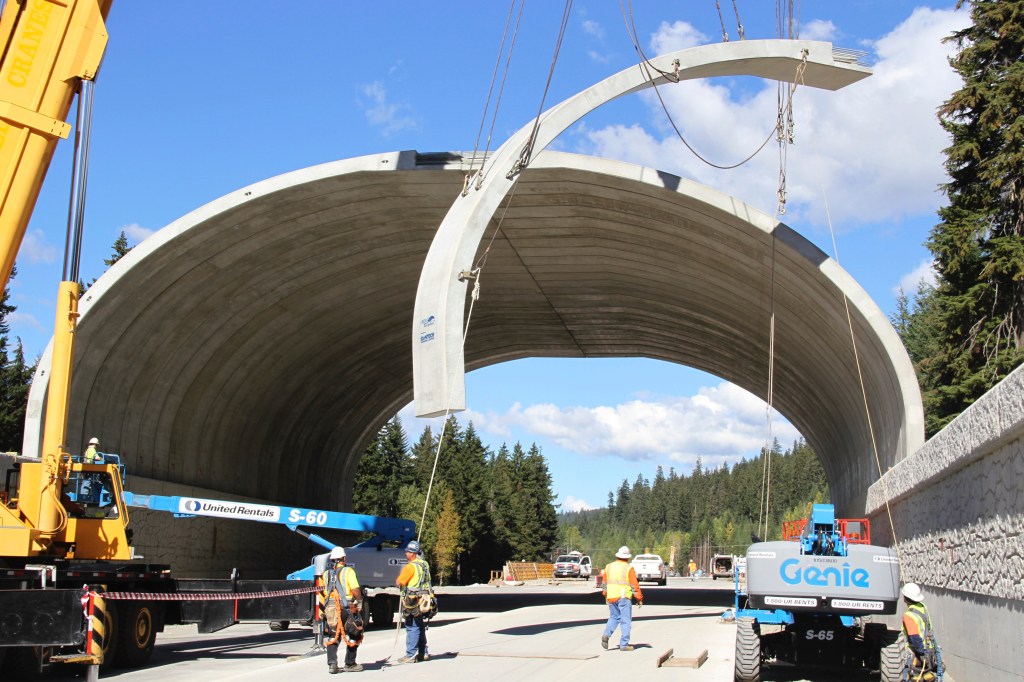
IN PROGRESS An overpass for wildlife is built on I-90 in 2016. This highway runs through Washington State.
CHASE GUNNELL—CONSERVATION NORTHWESTAll 20 crossings are expected to be completed by 2029. So far, six underpasses and one overpass have been built. Garvey-Darda says these crossings have made a difference. “We now have close to 5,000 deer and elk going through the undercrossings,” she says. “All of these animals were potential accidents.”
This spring, Washington locals can plant vegetation on the I-90 overpass. Garvey-Darda says the plants will encourage animals, including her beloved pika, to use the crossings. “It’s important to be proactive
proactive
 PORTRA—GETTY IMAGES
acting early to prevent problems
(adjective)
I try to be proactive by starting my homework as soon as I get home.
,” she says, “and not wait until a species is endangered.”
PORTRA—GETTY IMAGES
acting early to prevent problems
(adjective)
I try to be proactive by starting my homework as soon as I get home.
,” she says, “and not wait until a species is endangered.”






